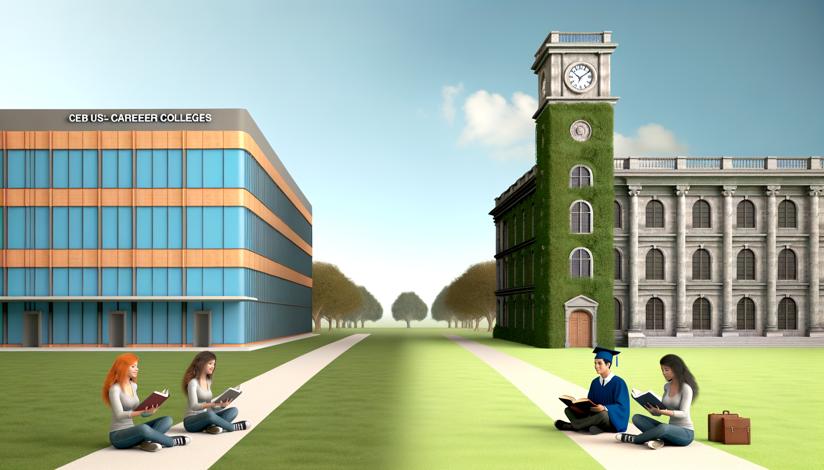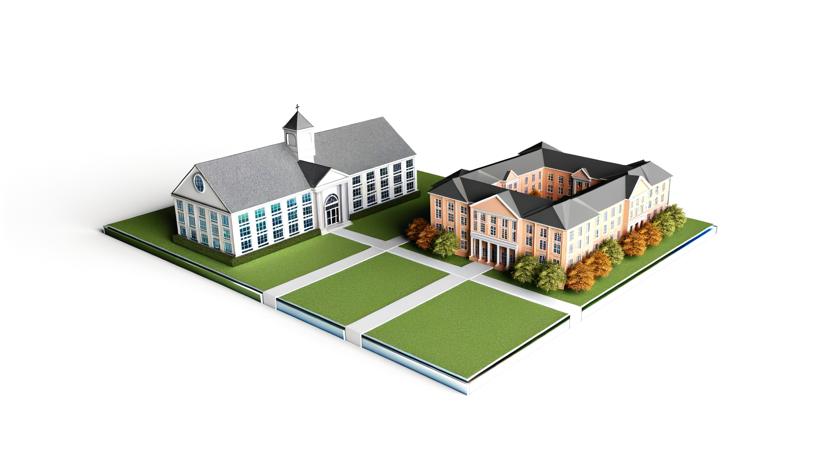

Career colleges, also known as vocational or technical schools, specialize in providing hands-on training for specific careers. They offer programs that are focused on developing practical skills and knowledge that are directly applicable to the job market. For example, a career college may offer programs in fields like cosmetology, culinary arts, automotive technology, healthcare, and business.
On the other hand, traditional colleges, such as universities and liberal arts colleges, offer a broader range of academic programs. They provide a more comprehensive education that includes a mix of general education courses and specialized majors. Traditional colleges often emphasize critical thinking, research, and theory-based learning. Students can choose from a wide range of majors, including humanities, social sciences, natural sciences, engineering, and more.
One advantage of career colleges is that they typically have shorter programs that can be completed in a shorter amount of time compared to traditional colleges. This allows students to enter the job market sooner and start their careers earlier. For individuals who are looking for a fast-track to a specific job or industry, career colleges can be a great option.
Another advantage of career colleges is their strong focus on practical skills and hands-on training. Students at career colleges get the opportunity to apply their knowledge in real-world settings through internships, externships, and on-the-job training. This practical experience can give them a competitive edge in the job market and make them more attractive to employers.
Traditional colleges, on the other hand, offer a more well-rounded education. They provide a broader foundation of knowledge and skills that can be applied to a variety of careers and industries. Traditional colleges often have extensive resources, including research facilities, libraries, and expert faculty, that can enhance the learning experience and provide opportunities for personal and intellectual growth.
One advantage of traditional colleges is their emphasis on critical thinking and analytical skills. Through a liberal arts education, students develop strong communication, problem-solving, and decision-making skills that are highly valued by employers. Traditional colleges also offer a wide range of extracurricular activities, clubs, and organizations that can help students develop leadership and teamwork skills.
One disadvantage of career colleges is that they may have limited options when it comes to academic programs. Career colleges typically offer programs in specific fields and may not have as many options as traditional colleges. This can limit students' choices and may not be ideal for individuals who are unsure about their career path or want to explore different subjects before committing to a specific field.
Another disadvantage of career colleges is that they may not carry the same prestige or reputation as traditional colleges. While this may not always be a factor in certain industries or careers, employers in some fields may prefer candidates who have a degree from a well-known and respected traditional college. The reputation of the college can sometimes play a role in job opportunities and advancement.
In conclusion, both career colleges and traditional colleges have their own advantages and disadvantages. Career colleges are ideal for individuals who want to gain practical skills quickly and enter the workforce sooner. They offer hands-on training and focused programs in specific fields. On the other hand, traditional colleges provide a more well-rounded education and offer a broader range of academic programs. They emphasize critical thinking and analytical skills, and provide opportunities for personal and intellectual growth. The choice between career college and traditional college ultimately depends on the individual's career goals, preferences, and personal circumstances.
Overall, both types of colleges can help students land their dream jobs, but the path to get there may be different. It's important for students to carefully consider their options, research the programs and courses offered, and weigh the advantages and disadvantages before making a decision.

Hands-on training
Practical skills

Limited program options
Lack of prestige














-
https://www.bls.gov/careeroutlook/2018/article/should-i-get-a-credential-or-a-degree.htm
-
https://www.princetonreview.com/college-advice/traditional-vs-career-college




























